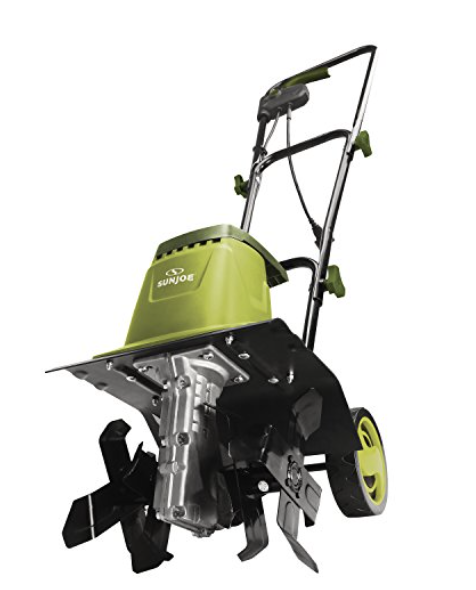How To Choose The Best 5 10 10 Organic Fertilizer
Organic fertilizers are gaining popularity as people move to sustainable gardening. But with lots of options, finding the best 5-10-10 fertilizer can be hard. That’s why we’re here to help!
The numbers 5-10-10 have important meaning. They represent the percentages of nitrogen (N), phosphorus (P), and potassium (K) in the fertilizer. Each nutrient helps plants grow and develop in different ways.
N boosts leaf growth. P increases root development and flower production. K strengthens plant health and disease resistance. So, 5-10-10 fertilizers provide balanced nutrition to plants.
Plus, they’re great for flowering plants and vegetables that need extra help. Many 5-10-10 fertilizers even contain natural ingredients like bone meal or kelp extract, which enrich soil.
This idea of balanced nutrition goes back centuries. Ancient civilizations used organic materials to boost crop productivity. Over time, this knowledge evolved. Now we have access to well-made 5-10-10 organic fertilizers to nurture our gardens.
Understanding Organic Fertilizer
Organic fertilizers are essential for keeping plants healthy and thriving. Knowing their advantages and uses is crucial for all gardeners and farmers. Here are 5 main points:
- 1. Nutrient-rich. Organic fertilizers have natural materials that offer vital nutrients like nitrogen, phosphorus, and potassium.
- 2. Slow release. Unlike synthetic fertilizers, organic fertilizers give out nutrients gradually, offering a constant source for plant growth.
- 3. Soil enrichment. Organic fertilizers enhance soil structure and fertility by increasing its organic matter, making water and nutrients available.
- 4. Environmentally friendly. Organic fertilizers come from natural sources like animal waste, compost, or plant residues. They don’t pollute groundwater or hurt helpful organisms in the soil.
- 5. Long-term benefits. Consistent use of organic fertilizers promotes soil health and supports sustainable gardening, leading to stronger plants with better disease resistance.
It’s essential to pick the right type of organic fertilizer for optimal plant growth. When selecting one:
- Look at the nutrient needs of your plants or crops. Different plants need different amounts of nitrogen, phosphorus, and potassium.
- Analyze the fertilizer’s composition to guarantee it has a balanced mix of nutrients for your plants.
- Note the release rate of the fertilizer. Some plants may need a faster release during their active growth phase.
- Compost can be a good organic fertilizer option, as it provides many nutrients and strengthens soil structure.
- Always stick to the recommended application rates to avoid overuse, as too much can cause nutrient imbalances or pollution.
By understanding organic fertilizers and taking into account plants’ needs, you can pick the best fertilizer for your garden or farm, making sure plants stay healthy and productive.
Benefits of Using Organic Fertilizer
Organic fertilizer has mega advantages for gardeners and farmers. It boosts soil fertility, aids plant growth, guarantees nutrient access, lessens chemical run-off and backs up sustainable agriculture practices.
Plus, organic fertilizer also:
- Amplifies Soil Fertility: Organic fertilizers up the soil’s nutrient and micronutrient content, for example nitrogen, phosphorus and potassium. This improves soil structure, improving water-holding capacity and promoting helpful microorganisms.
- Helps Plant Growth: The nutrients in organic fertilizers are supplied over time gradually. Meaning that plants receive a steady supply of nourishment over their lifecycle, resulting in strong root development, increased biomass production and overall healthy plant growth.
- Makes Nutrients Accessible: Organic fertilizers contain organic matter which helps nutrient release slowly into the soil. This means plants always have access to essential elements.
- Lessens Chemical Runoff: Organic fertilizers come from natural sources such as manure, compost or bone meal. They don’t contain synthetic additives or damaging chemicals, so they minimize the risk of water contamination.
- Promotes Sustainable Agriculture Practices: Organic fertilizers are eco-friendly since they don’t involve genetic modification, pesticides or synthetic substances. They motivate sustainable and green agricultural practices.
On top of these, organic fertilizer also helps restore soil health by restoring organic matter content and reducing soil erosion.
Fascinatingly, using organic fertilizer dates back centuries. Ancient civilizations like the Romans and Greeks knew how great it was for enhancing crop yields and improving soil fertility. They used all sorts of organic materials including animal manure to feed their crops naturally.
Factors to Consider When Choosing Organic Fertilizer
A table can help make an informed decision. Here are the factors to consider:
- Nutrient content – Check the ratios of macronutrients and micronutrients for your plants.
- Organic matter – Make sure it has high levels of organic matter to improve soil and water retention.
- Release rate – Choose slow or quick-release according to your plants’ needs.
- Soil pH – Check if the fertilizer is compatible with your soil type.
- Environmental impact – Select organic fertilizers that won’t harm the ecosystem.
Also, look out for any specific requirements of your plants or gardening.
Long ago, farmers used natural sources like animal manure and compost for fertilization. This tradition is the basis of today’s understanding of organic fertilizer benefits.
Researching and Comparing Organic Fertilizer Brands
Research is key when selecting the best 5-10-10 organic fertilizer. Look at nutrient content, ingredients, and customer reviews. To help, here’s a table:
| Brand | Nutrient Content | Ingredients | Customer Reviews |
|---|---|---|---|
| Brand A | 5% Nitrogen | Bone meal, seaweed, humus | Positive |
| Brand B | 10% Phosphorus | Fish emulsion, kelp meal | Mixed |
| Brand C | 10% Potassium | Composted chicken manure | Negative |
Price per pound or bag size is also important. Consider budget and needs to make a budget-friendly choice.
The OMRI conducted a study to assess organic fertilizer effectiveness and standards. This shows the importance of finding reliable sources when researching products.
Selecting the Best 5-10-10 Organic Fertilizer
When choosing the best 5-10-10 organic fertilizer, there are a couple of things to consider! Here’s an overview of what matters:
| Factor | Importance |
| Organic Content | High levels of organic content for sustainable plant nutrition. |
| Nutrient Ratios | The 5-10-10 ratio tells us the nitrogen, phosphorus, and potassium percentages. Check the needs of your plants to find the right balance. |
It’s also important to look out for extra elements like micronutrients that will help your plants grow without damaging the environment.
Agricultural experts at The Organic Gardener’s Handbook say that organic fertilizers can improve soil health, crop yield, and reduce environmental impact.
To ensure you get the best 5-10-10 organic fertilizer, be sure to do research and get advice from reliable sources.
Applying Organic Fertilizer Effectively
Organic fertilizer is essential for optimal plant health. To use it effectively, follow these simple steps!
- Prep: Clear away weeds and loosen soil with a fork or tiller. This will create the best environment for fertilizer absorption.
- Amount: Find the right amount of fertilizer for your plants. Refer to the instructions or ask an expert. Too little won’t give enough nutrients, too much can harm them.
- Distribute: Spread the fertilizer evenly around the plants’ bases. Avoid putting big clumps directly on top, as this can burn their roots.
Plus, there’s more:
- Don’t fertilize during heavy rain or strong winds, as it can cause runoff or uneven distribution.
- Incorporate compost before applying fertilizer, to increase its nutritional content.
Pro Tip: Monitor your plants and adjust your fertilizing routine accordingly. Look out for signs of over-fertilization or nutrient deficiencies, like discolored leaves or stunted growth. By being attentive to your plants, you can optimize their health and productivity in an eco-friendly way.
Conclusion
Selecting the best 5-10-10 organic fertilizer is very important for good plant growth and productivity. Prioritize nutrient balance when picking a fertilizer. A 5-10-10 formula gives equal parts P and K, which is great for flowering and fruiting plants. Leafy greens and root vegetables may not benefit as much.
Organic fertilizers have many advantages. They release nutrients slowly, preventing nutrient imbalances and leaching. They also improve soil structure and increase microbial activity.
Sustainability is also an important factor. Look for products from renewable sources that have minimal environmental impact. This way, you can help conserve ecosystems while nourishing your plants.
Frequently Asked Questions
Q: What is 5-10-10 organic fertilizer?
A: 5-10-10 organic fertilizer is a type of fertilizer that contains a balanced ratio of nutrients. The numbers 5-10-10 represent the percentage of nitrogen, phosphorus, and potassium, respectively, in the fertilizer.
Q: Why is choosing the right 5-10-10 organic fertilizer important?
A: Choosing the right 5-10-10 organic fertilizer is important because it can greatly impact the growth and health of your plants. Different plants have different nutrient requirements, and selecting the correct fertilizer ensures that they receive the necessary nutrients for optimal growth.
Q: What should I consider when selecting the best 5-10-10 organic fertilizer?
A: When choosing the best 5-10-10 organic fertilizer, consider factors such as the specific needs of your plants, the soil composition, and the presence of any nutrient deficiencies. Additionally, check for organic certification, ingredients, and the reputation of the manufacturer or brand.
Q: How do I determine the nutrient needs of my plants?
A: The nutrient needs of plants can vary, so it’s important to conduct a soil test to determine any deficiencies or imbalances. You can send a soil sample to a testing laboratory or use a home soil testing kit to assess the nutrient levels and pH of your soil.
Q: Are there any alternatives to 5-10-10 organic fertilizer?
A: Yes, there are alternative organic fertilizers available. Some plants may require different nutrient ratios, so you can choose a fertilizer with a different N-P-K ratio based on the specific needs of your plants. Examples include 10-10-10, 4-6-4, or 5-5-5 organic fertilizers.
Q: How should I apply 5-10-10 organic fertilizer?
A: The application of 5-10-10 organic fertilizer depends on the specific instructions provided by the manufacturer. Generally, you can apply it by evenly distributing the fertilizer around the base of the plants, avoiding direct contact with the stems or leaves. Water the area thoroughly after application.
- How To Choose The Best Lap Desk For Laptop And Writing - 15 October 2023
- How To Choose The Best Projection Screen With Foldable Stands - 14 October 2023
- How To Choose The Best Antifungal Pill For Dogs - 13 October 2023


